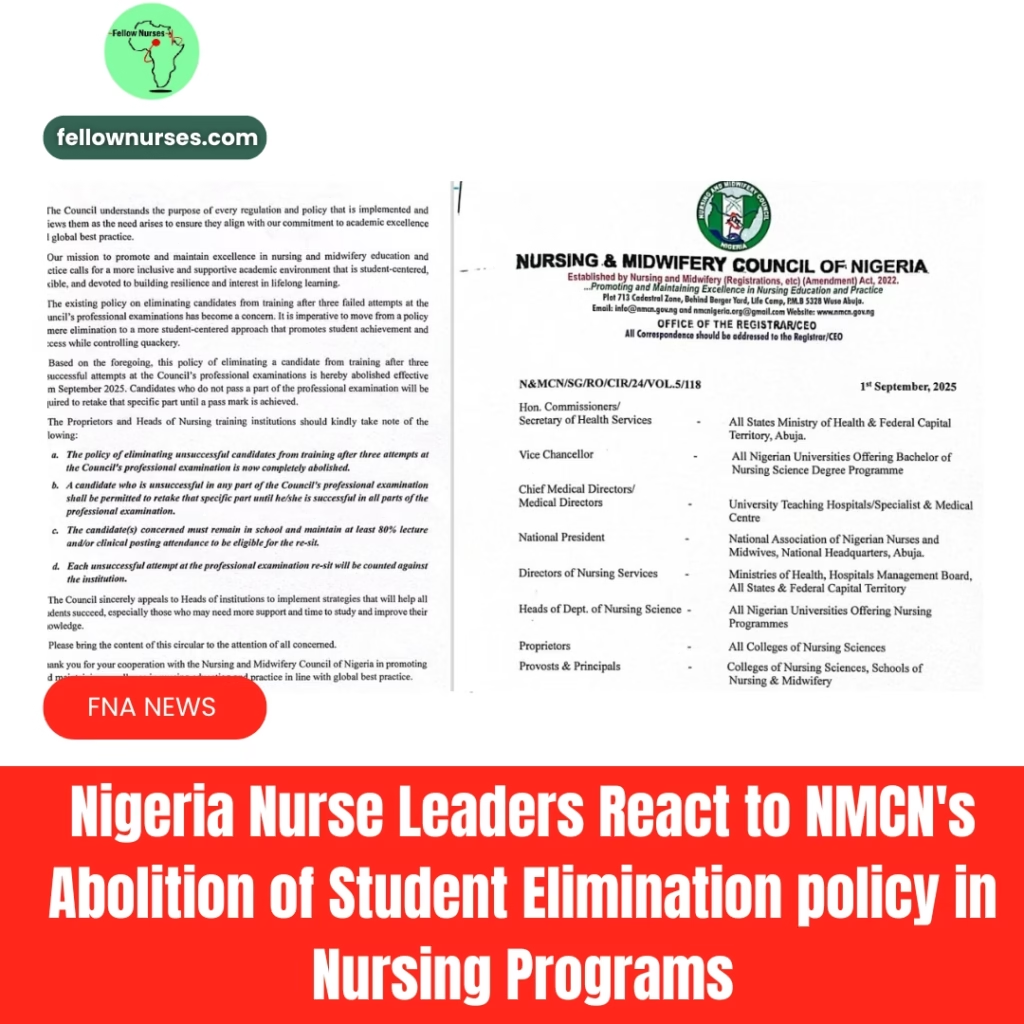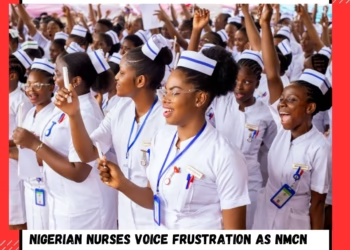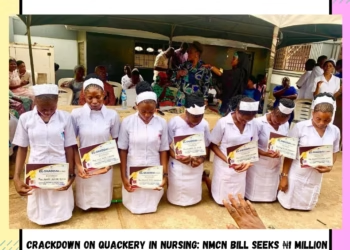Published: September 8, 2025, 08:17 AM BST | Abuja, Nigeria

In a heartfelt reform poised to reshape nursing education, the Nursing & Midwifery Council of Nigeria (NMCN) has abolished the policy that once excluded students from training programs after three unsuccessful attempts at professional examinations.
Effective from September 1, 2025, aspiring nurses can now retake specific failed sections as needed, provided they maintain at least 80% attendance in lectures and clinical postings.
This compassionate adjustment, outlined in a circular signed by Registrar/CEO Ndagi Alhassan, reflects a commitment to nurturing talent and resilience, addressing Nigeria’s healthcare workforce challenges amid an exodus of over 42,000 nurses in recent years.
Distributed to stakeholders including health commissioners, university vice-chancellors, and nursing associations, the policy has prompted thoughtful reflections from nurse leaders. These voices highlight a shared dedication to supporting the next generation of caregivers, balancing empathy with the profession’s high calling.
Voices in Support: Nurturing Hope and Human Potential
A seasoned educator from a federal university in Lagos, who requested anonymity to speak freely, shared in a private discussion: “This reform is a tender acknowledgment of the struggles our students endure; financial burdens or limited resources. By allowing focused re-sits, we’re offering a lifeline, affirming that every dedicated soul deserves to heal our communities.”
A director from a major teaching hospital in Abuja, preferring discretion, confided to colleagues: “I’ve witnessed too many promising nurses falter under rigid rules. This policy invites us to build supportive pathways, ensuring more compassionate hands reach those in need.”
Concerns from Thoughtful Critics: Upholding Excellence with Care
A veteran administrator from a zonal NMCN office, opting for confidentiality, reflected in an interview: “Compassion must guide us, yet endless attempts without robust support could strain our systems, risking the standards that protect patients. We need resources to honor this change.”
Broader Implications for Nigeria’s Nursing Landscape
These reflections reveal a profession united by empathy, seeking to uplift those who care. Supporters envision a future of empowerment through enhanced mentoring, while critics advocate for resources to maintain excellence.
As the NMCN fosters collaboration for continuing professional development, this reform offers aspiring nurses renewed hope and promises a stronger healthcare tapestry for the nation.
For the latest on NMCN initiatives and nursing’s human story in Nigeria, follow trusted sources.
What do you think of this reform, share your thoughts in the comments
Fellow Nurses Africa is the independent voice of African nurses. We educate, inform and support the nursing profession.










